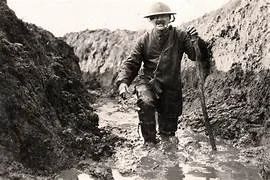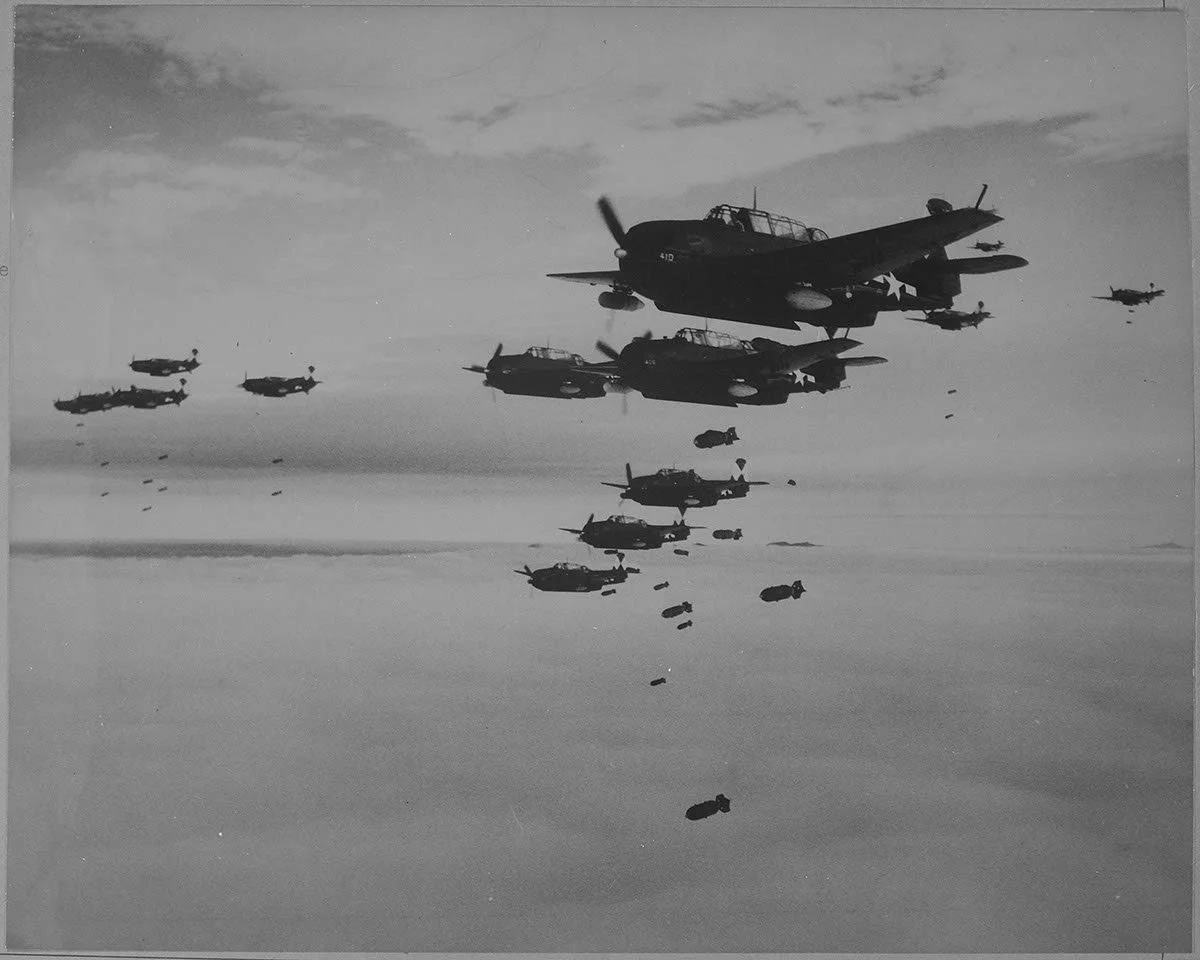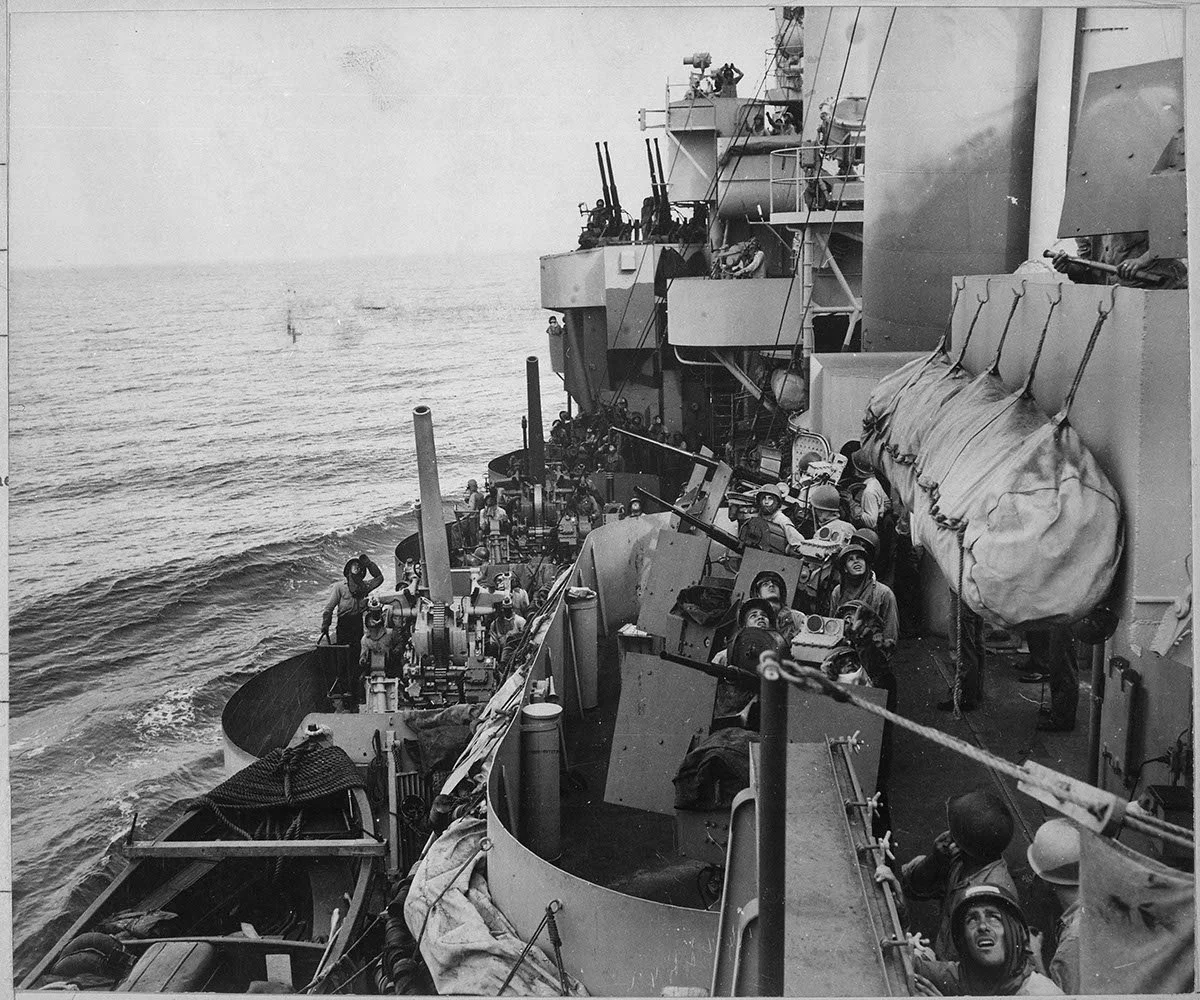World War I in Literature
Jean Dumoulin, one of the diggers sent into a series of tunnels in the Argonne known as Satan’s Lair in February, 1916, is clearing rubble along the entry to an old mine shaft when he finds what he considers to be “another stiff.” Minutes later in the Meurisson Alley Field Hospital, Dr. Michel Denis examines the body, and the man opens his eyes.
With no memory of who he is or what has happened to him, the man becomes known as the Mole, and Denis and others try to piece together his story. Captain Réviron thinks the man is a deserter and should be court martialed. Denis believes he has lost his memory and maybe even his mind because of shell shock. The Mole himself insists he is irrevocably dead and an Other is pulling his strings when he writes in a gray journal details about a French diplomat, spies in the Prussian empire, and scientists who are just beginning to understand the workings of the human mind.
https://www.amazon.com/Shadow-Mole-Bob-Van-Laerhoven/dp/4824126436
For this author’s book review, see: https://historicalnovelsociety.org/reviews/the-shadow-of-the-mole/
The Shadow of the Mole is an award-winning novel by Belgian/Flemish author Bob Van Laerhoven, who writes regularly about conflict or political and societal unrest. With The Shadow of the Mole and the subsequent Firehand Files, Van Laerhoven explores what has come to be known as the Forgotten War—World War I.
The Forgotten War
It was called the Great War, the Good War, the War to End All Wars.
World War I was the first conflict to span the European continent and involve North America and the Far East—pitting the Central Powers of Germany (Austria Hungary, Bulgaria, and Turkey) against the Allied Powers (Britain, France, Italy, Romania, Russia, Japan, and the United States).
It also was the first to use advanced mechanized weapons—tanks, airplanes, machine guns.
From its beginning in June, 1914, to its end on November 11, 1918, World War I cost 16 million lives--9 million military men and 7 million civilians--permanently disabled 7 million fighting men, and caused 37 million casualties https://www.history.com/topics/world-war-i/world-war-i-history
The war precipitated the collapse of four monarchies—Austria Hungary, Germany, Russia, and Turkey—sparked the rise of Bolshevism in Russia and fascism in Italy and Germany, and forever changed industrial production and women’s place in the workforce.
Yet it is largely forgotten. Many can’t name a single battle, recognize the names of heroes of the time—flying ace Eddie Rickenbacker (highlighted in the 1945 film Captain Eddie) starring Fred McMurray https://www.imdb.com/title/tt0037575/) and infantryman Alvin York (memorialized in Sgt. York, the film starring Gary Cooper https://www.imdb.com/title/tt0034167/).
Recent films have shown a spotlight on the conflict. Sam Mendes’ tribute to his grandfather’s WW I war stories—1917—followed the path of two British lance corporals as they race to deliver a message that will call off a planned attack by the Devonshire regiment and protect 1600 British infantry lives. The film grossed $384 million and was voted one of the best films of 2020. The 2022 All Quiet on the Western Front reimagined the 1929 novel by Erich Maria Remarche that trailed a 17-year-old German soldier across battlefields and in trenches while armistice talks ensued. The film was voted won of the top five foreign films by the National Board of Review and won the San Diego Film Critics’ Society Best International Film award.
The number of portrayals of WW I nevertheless pales in comparison with those of WW II. While about 130 films have been made about WW I, more than ten times that number have been made about WW II, including 250 before war’s end. In 2023 45 novels about WW I were listed on Goodreads compared to 100 about WW II on Amazon. Twenty-eight TV series have focused on the First World War. The same number of series on the Second World War were produced in one decade—2010.
The lack of interest is perhaps understandable. The precipitating action and reasons for going to war in 1914 were murky, especially for the US: an assassination of the heir to the Austria Hungary Empire by a Serbian nationalist. The morality and presence of villains Adolf Hitler and Benito Mussolini as well as the direct attack in Pearl Harbor made entry into war by the US a clear cut necessity little more than 30 years later.
The nature of the battles themselves is also a factor. WW I was a step-by-step grind over mud-soaked territory from deeply dug trenches up and overland and toward barbed-wire frontlines.
WW 2 spanned the air and the seas, the dessert of North Africa and blacked out streets of London, the bitterly cold steppe near Stalingrad and the jungle heat of Iwo Jima.
World War I and Literature
What’s known as the modernist revolution in literature predates WWI. In 1908 poets and authors began experimenting with radical and utopian themes, newer forms of expression that focused on inner thoughts rather than outward actions, paid more attention to mood than sentiment, and opted for free verse instead of standard rhyming patterns.
WW I introduced particularly dark themes and methods of expression. Chaos replaced idealism as writers broke from the past to respond to a changing world and explore the characteristics and failings of modern society. Works during the war years were often anxious, angry, and cynical, bleak and pessimistic.
Perhaps most telling was the shift inward. Points of view were introspective, characters spoke through streams of consciousness or interior monologues, thoughts were expressed as they passed through the mind, beliefs about absolute truth were replaced by disillusionment and distrust of the channels of power—both government and religion.
Modernist Authors
Among the authors most often cited as WW I modernists are:
Richard Aldington. His Death of a Hero (1929) reveals a soldier’s post-war struggles with daily life. “The casualty lists went on appearing for a long time after the Armistice - last spasms of Europe's severed arteries.” https://www.goodreads.com/author/quotes/94230.Richard_Aldington
T. S. Eliot. Wasteland (1922) stuns in its description of the devastation of war—
April is the cruelest month, breeding
Lilacs out of dead land, mixing
Memory and desire, stirring
Dull roots with spring rain
Ernest Hemingway. A Farewell to Arms (1929) recalls his own experience fighting for the Italian army. “I had gone to no place where the roads were frozen and hard as iron, where it was clear cold and dry and the snow was dry and powdery and hare-tracks in the snow and the peasants took off their hats and called you Lord and there was good hunting. I had gone to no such place but to the smoke of cafes and nights when the room whirled and you needed to look at the wall to make it stop, nights in bed, drunk, when you knew that that was all there was.” https://www.litcharts.com/lit/a-farewell-to-arms/themes/war
Wilfred Owen. Anthem for Doomed Youth (1917) portrays the horrors of war where men “die as cattle” amid the “monstrous anger of guns” and corpses lie “face downward in the sucking mud, wallowed like trodden sand-bags loosely filled.”
Siegfried Sassoon. Memories of an Infantry Officer (1930) humbles the distant observers of war--
You smug-faced crowds with kindling eyes
Who cheer when soldier lads march by
Sneak home and pray you’ll never know
The hell where youth and laughter go
Rebecca West. The Return of the Soldier (1918) emphasizes the persistence of traumatic memory. “He walked not loose-limbed like a boy, as he had done that very afternoon, but with the soldier’s hard tread upon the heel. It recalled to me that, bad as we were, we were yet not the worst circumstance of his return. When we had lifted the yoke of our embraces from his shoulders he would go back to that flooded trench in Flanders under that sky more full of flying death than clouds, to that No Man’s Land where bullets fall like rain on the rotting faces of the dead.” https://www.litcharts.com/lit/the-return-of-the-soldier/quotes
Authors of Today
Some of the most recent novels set during WW I shed light on previously untold aspects of the conflict. The Porcelain Moon tells of the 140,000 Chinese people who were brought to Europe to serve as laborers in farms and factories.
Canary Girls recalls the Thornshire Canaries Ladies’ Football Club and the Football Battalion of the war years.
In Memoriam tells of young boarding school men’s involvement in the war and the love they shared with one another.
Almost a paean to the works of the early 1900s is The Shadow of the Mole. Named the best literary historical novel of 2022 by the Historical Fiction Company, the novel conveys the brutality and traumatic effects of war on mind and body. As author Van Laerhoven observes: “Delusions, shell shock, neurasthenia, constitutional fragility…are those names and theories, just to hide the naked fact that war was an all-consuming and putrefying disease in itself devouring its young, a gangrene of the mind.”
World War I literature and shell shock—next time on Time Stamp.
Sources:
https://www.history.com/news/how-world-war-i-changed-literature
https://www.history.com/news/how-world-war-i-changed-literature
Out of the wasteland: the First World War and modernism. The evolution of modernist literature was intimately bound up with the shock and devastation of the war
HomeLiteratureLiteratures of the World
https://humanities.byu.edu/writing-the-war-to-end-the-war-literary-modernism-and-wwi/
How World War I Changed Literature, by AMANDA ONION, UPDATED: MARCH 27, 2023 | ORIGINAL: APRIL 26, 2018




